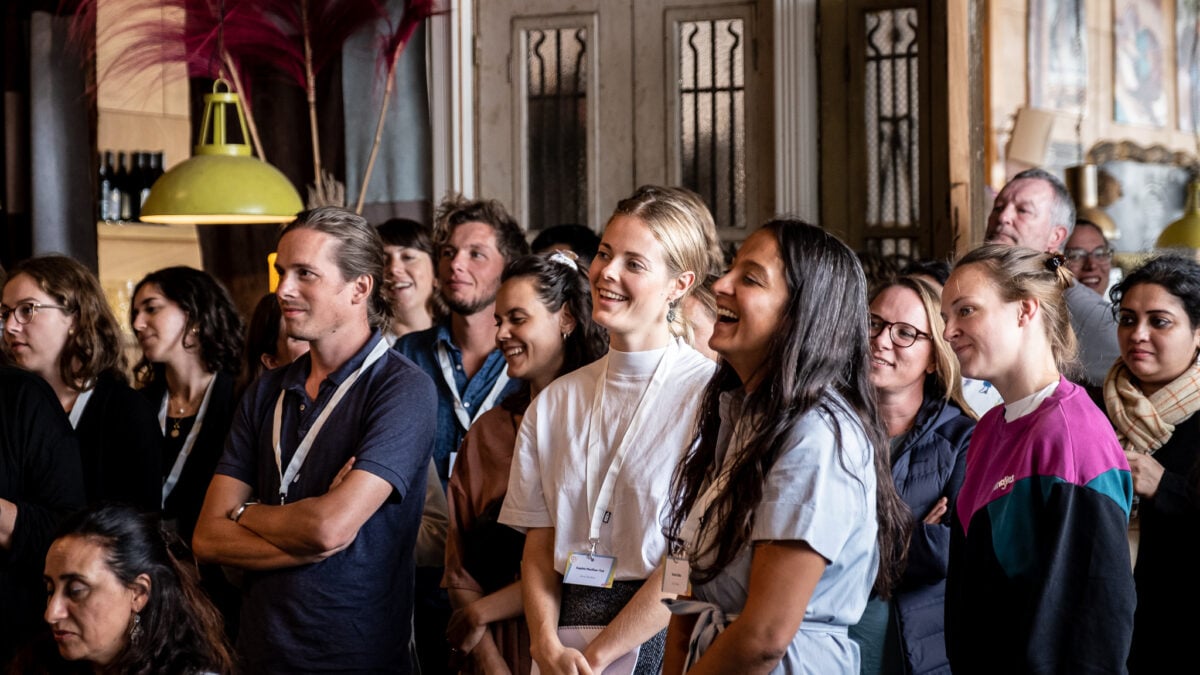
Get to know Fair Wear
At Fair Wear, we are accelerating the movement toward a world where garment workers see their human rights realised, where change is driven through freedom of association, and the global value chain a source of safe, dignified and properly paid employment.
Who we are
Fair Wear was founded in 1999 with the ambitious mission to improve labour conditions in the garment industry. Progress has been made since then, but significant challenges remain. Now is the time to accelerate this progress and push the industry to a tipping point.
Building a critical mass for change
As a true multistakeholder initiative, we connect and convene brands, factories, workers, trade unions, NGOs and other industry influencers. Ambitious alignment is needed to drive the garment industry to become fair for all. We are progressive in our views and strive to bring our shared vision to the wider industry to push for alignment and action by utilising the unique leverage each stakeholder has.
Our approach is to closely collaborate to build a critical mass for change, providing active and practical support to ensure that workers are in the driving seat of improving and monitoring their own working conditions. We envision and actively work towards a situation where garment workers are well informed, well represented and have the means to raise concerns when their rights are violated. We guide and assess brands and promote the full and mandatory implementation of the OECD guidelines for human rights due diligence across the industry.
Shifting power imbalances
Power imbalances are a major obstacle to realising this vision. Workers must be in a position to form or join a trade union, and their democratically elected representatives should be able to speak on their behalf. Effective ‘Social Dialogue’ between collective workers’ voice and employers is key to improving working conditions, including wages.
Factories in turn should be empowered to negotiate with their customers, the brands, on an equal footing through ‘Sourcing Dialogue’. Brands must see and treat their suppliers as real business partners, moving away from the currently dominant transactional and regularly shifting relationships. Purchasing practices must be improved to allow for actual shared responsibility. This includes an active role for brands to engage in human rights due diligence and contribute to prevention and remediation. A shift is needed from a factory compliance approach to actual due diligence, moving from the identification of individual issues to the assessment, prevention and remediation of structural risks and violations.
Our proven methods and approach
With our 140 member brands, frontrunners in the sector, we develop practical solutions and show how progress can be made. Their efforts towards better working conditions in their supply chains are publicly assessed and serve to inspire the whole of the industry. In all we do, our membership is of crucial importance for the impact we have.
Through partnerships with like-minded organisations and with other stakeholders that show genuine ambition for actual change, we aim to reach the wider industry and ensure critical mass. Effective due diligence legislation, a shared vision and tools for improved collaboration across the sector, form the basis for making real progress together.
Governance
Since Fair Wear is an independent, not-for-profit foundation, independence is guaranteed by our multi-stakeholder board in which industry associations on the one hand, and trade unions and NGOs on the other are equally represented. Our Board, Committee of Experts (CoE) and staff members must actively try to understand and reconcile the various interests and points-of-view at play, always with the objective of reaching Fair Wear’s ultimate goals. Board and CoE members represent these different points of view, not specific organisations. Specifically, members with an industry background do not represent Fair Wear member brands but aim to bring to the table a constructive view from the industry at large. Board decisions are reached through consensus and new members, when required, are appointed by the sitting Board.
Transparency and equal access to information are important values for the Foundation. At the same time, issues related to human rights promotion often involve sensitive strategic and political considerations that can only lead to progress if kept confidential. Board agendas, meeting reports and decisions are published in shortened form, for the sake of readability but mostly to protect confidentiality where needed. Any choice to omit sensitive information will be made in the explicit interest of the goals of the Foundation, to protect the security and privacy of individuals, partners or target groups.



